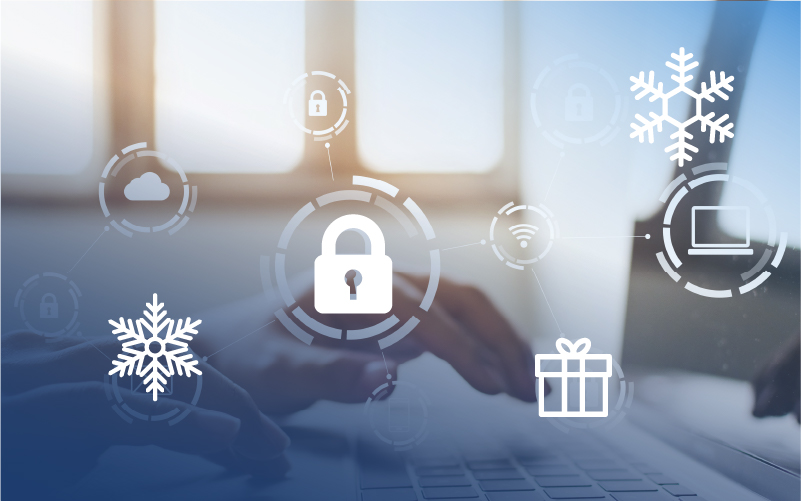Avoid Holiday Shopping Scams This Year

Every year around the holidays we like to provide our members with some help to avoid online shopping scams. This year is no different, especially with the uptick in COVID-related fraud.
As is with every year, scammers are becoming even more advanced in their techniques to try and fool you into divulging personal information. Since most people are going to be doing all of their holiday shopping entirely online this year, we want to make sure your finances are safe.
Here’s how you can be on high alert for holiday shopping scams while you are browsing the best deals:
Secret Santa gift exchanges on social media.
With most of us adapting to the new virtual world, that can mean more time spent on social media. Be on the lookout for people you don’t personally know inviting you to participate in secret santa gift exchanges on Facebook or Instagram. Sometimes these online gift exchanges can really be a pyramid scheme in disguise. They lure you in by asking you to purchase a $10 gift and in return you will receive multiple gifts of the same denomination. Remember to never give your personal information out to strangers.
Make sure emails are legitimate.
Phishers are getting even more savvy in their targeted emails the clues that something is not real may be as slight as one letter missing from a word or a small spelling error. Be careful to not enter personal information on an email or website that is not a trusted source.
Don’t open attachments with special offers.
This is a classic scam. If the email presents a valid offer, you shouldn’t have to open an attachment or click on a link.
Watch for malicious ads and pop-ups.
If an ad sounds too good to be true, it probably is! Ignore pop-ups that make “best deal ever” claims, particularly during the holiday shopping season.
Do not shop over public Wi-Fi.
It’s always good to remember to never send sensitive data over free or public wi-fi networks. You can’t be sure if the network is secure, or if others are spying on your online session. If you must use public wi-fi, be sure to use a VPN connection which encrypts your information.
Change your password often to stay protected.
This is best practice year-round, not just during the holidays. Reusing any of your passwords is an invitation to get hacked. Instead, use a password manager to create hard-to-break passwords.
Keep a close eye on your credit card and bank accounts.
You should monitor your accounts throughout the year, not just during the holiday season. Unexpected charges are typically the first sign that your card, or even your whole identity has been stolen. If you think you’ve been scammed, stay calm and call your credit card company immediately.
Be especially suspicious of gift card scams.
They can be an easy holiday gift to purchase online, but gift card scams are still on the surge. Only buy gift cards from trusted sources.
Really good deals.
Scammers will often get your attention by offering a really good deal. A new scam going around this year is purchasing merchandise and in return being sent something far less expensive instead. If this happened to you, its important to make sure you save the product and the packaging so you can contact your financial institution for assistance returning the incorrect item to obtain a full refund.
Paying “cash” for merchandise.
Scammers are convincing unsuspecting buyers to send payment via Cash App, Venmo, Apple Cash and other money transfer services in exchange for merchandise that does not exist. Leaving the buyer stuck with no dispute option because they willingly authorized the cash transfer.
Remember, cPort is always here to help. If you receive a suspicious call or text, call cPort directly at 1-800-464-0253. Even if our offices are closed, option 2 on our main menu will connect you to 24/7 card support.
Shop safe, shop smart!
